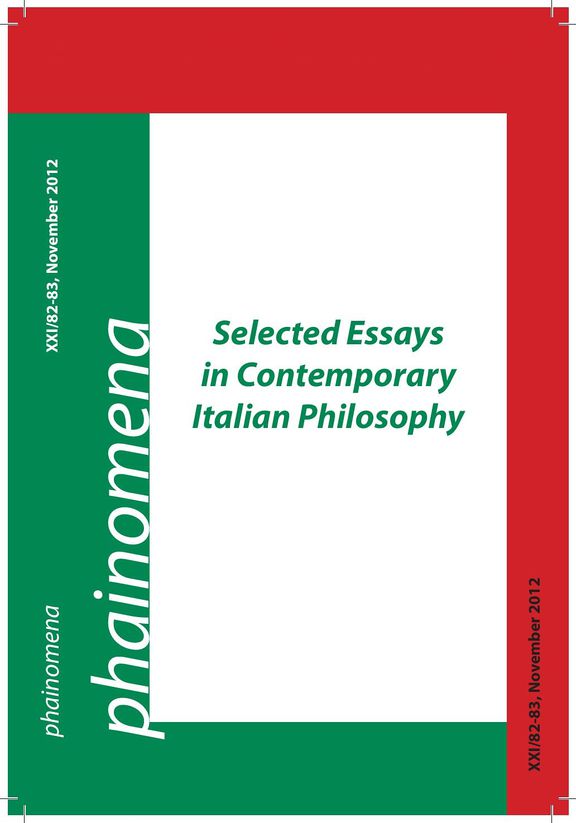Phainomena Journal
Phainomena lays a foundation for a new spiritual discussion from the perspective of phenomenology and hermeneutics. This discussion takes its form in relation to the entire European spiritual tradition, reaching both to its centre and over its edges. In view of this, Phainomena pays most attention to the topics placed at the intersection of tradition and topical issues (Contents and Abstracts). The articles and translations published in the journal are mostly those from the fields of phenomenology, hermeneutics, social hermeneutics, philosophy of religion, theory of science, philosophy of art, history of philosophy and philosophy of culture. At least a quarter of the published articles and translations are used as study material by students of philosophy and other courses in humanities. Articles are published in the Slovene language because special attention is paid particularly to the development of Slovene philosophical terminology. Separate collections and issues in foreign languages are also published. Phainomena was the first specialised journal for the phenomenological and hermeneutic philosophy to be established in central and eastern Europe following the fall of the Berlin Wall. Its main role is still to bring together philosophers from this geographical area, and at the same time, in collaboration with philosophers from North and South America, Japan and China as well as Africa, to open up global perspectives of phenomenological and hermeneutic philosophy. International contributors include Paul Ricoeur, Jean Greisch, Jean-Luc Marion, Alfredi Marini, Mario Ruggenini, Gianni Vattimo, Emanuele Severino, Ingeborg Schüßler, Laszlo Tengelyi, Alfredo Marini, Rainer Thurnher, Felix Duque, Tadashi Ogawa and Dietmar Koch, while translated authors include Aristotle, Brentano, Freud, Derrida, Dilthey, Gadamer, Girard, Heidegger, Husserl, Jonas, Kant, Levinas, Nietzsche, Plessner, Ricoeur, Rorty, Scheler, Schleiermacher, Spinoza, Suarez, Vico, Vlačić and Leibniz.



